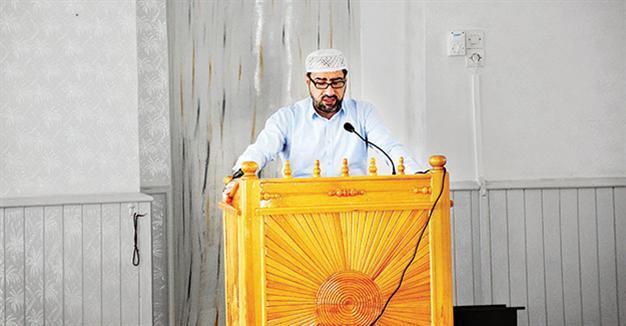Fresh secularism debate stirred in Turkey over authority given to religious heads on marriage
Oya Armutçu – ANKARA
 A series of new regulations enabling provincial and district religious affairs authorities to conduct official marriages has sparked fresh debates on secularism in Turkey.
A series of new regulations enabling provincial and district religious affairs authorities to conduct official marriages has sparked fresh debates on secularism in Turkey. Speaking at his Justice and Development Party (AKP) parliamentary group meeting on June 28, Prime Minister Binali Yıldırım said local müftis and muhtars (village heads) of villages with neighborhood status will be given authority to conduct marriages.
Legal experts and academics have suggested that such a regulation would contradict with Turkey’s constitutionally protected principles of secularism. Turkey Bar Association (TBB) head Metin Feyzioğlu has claimed that the regulation is “the first step in switching from secular to sharia law.”
“This regulation will remove women’s right to marry of their own free will. This is a dangerous development that is removing safety,” said Feyzioğlu, adding that the “modern Turkish Republic’s gains” will be taken away from women with the regulation.
“Currently, in marriages conducted at municipalities, only registrars can conduct marriages and they do not see themselves authorized to act on other issues. Muftis, imams, and muhtars, however, are different. They will be able to put pressure on young people to marry. It will be women who see the greatest harm from this pressure,” he added.
Dr. Devrim Güngör of Ankara University’s Law Faculty also said the regulation was “against the constitution’s principles of secularism and the state of law.”
“In a secular state of law, imams or müftis cannot be given jurisdiction to conduct marriages. Marriage is a legal institution that is made official by the Civil Code,” said Güngör, adding that parties can choose to have a religious ceremony only after these civil requirements are met.
“For example, in Italy, which hosts the Catholic Church, church marriages do not have legal acceptance and only have a symbolic meaning. Only municipalities can conduct lawful marriages,” said Güngör.
















